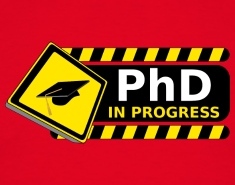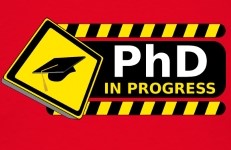

I cried the first time I walked through the doors of the University of Massachusetts Boston (UMass Boston). My time had finally come to get my Ph.D. For decades I knew I would get my doctorate “someday” and the moment had arrived. I called my husband in tears. I needed to say the words “I am really going to get my Ph.D.” aloud –and for him to hear me – before the reality could truly sink in.
Education was my “way out” of a family locked in generational cycles of violence, substance abuse, mental illness and poverty. My mother had dreamed of escaping by going to college in Hawaii, but was told by her abusive father that she could learn everything in the factory where she worked that she could in college. The owners of the family pharmacy where my father worked offered to send him to the local college, but he turned them down. His priority was easy access to drugs rather than an education.
From a very early age I knew I needed to get away. My very first memory is of being sexually assaulted by my member of my immediate family in the back of a family friend’s bar. I was preverbal at the time, but I just remember feeling “shattered.” The world had somehow changed, but everyone was acting like nothing had happened. I continued to be physically, sexually, and emotionally abused by multiple members of both sides of my family until early adolescence. During that same time an immediate member of my family commercially sexually exploited me at truck stops and parties to support his drug addiction.
I knew I had found my escape route when I began to read in first grade. Books not only gave me a place to flee in my mind, but I also aspired to be like my teacher. She was kind, independent, and smart: my first role model. Learning made me happy and, for the first time, hopeful. I begged my mother to drive me to the town library 30 minutes away. My library card was my first passport. I felt independent and grateful for the opportunity to have a building other than church where I felt safe.
The sexual abuse and exploitation finally stopped when I was in middle school. The physical and emotional abuse continued, and so did my resolve to leave my family and my hometown by going to college far away (just as my mother had hoped for herself). In high school, I took several college-level courses at the very university where my father had refused to go. I turned 18 one day and graduated from high school the next. Three months later, my mother drove me college 2 ½ hours away. I had made it.
Yet, in many ways my work was only beginning. While my mother had encouraged my college education, she did not have any means to help me pay for my degree. My undergraduate degree took six years to complete because I had to take time off to work. Additionally, my mother died of cancer six months before I graduated. She waited until I had registered for classes to tell me her bone marrow transplant hadn’t worked for fear I would stay home to take of her instead of finishing school. Before she died, my mother told me to follow some friends to Boston and to get my master’s degree. I did both.
While receiving my master’s degree I started putting the pieces together about my abuse and exploitation history. “We study our pain,” is a common belief at the Wellesley Centers for Women, a research and action department of Wellesley College, where I now work as a social scientist. I initially focused on prostitution, which led me to the commercial sexual exploitation of children (CSEC). I had also started therapy during the same time, which also helped me to navigate the “roadmap” of my past. I confronted my abusers during this time and was told to never contact them again. I knew too much.
Thankfully I now have a true family and close circle of friends that support and care for me. I have been married for almost 13 years and we have an extraordinary 9 year-old son. Plus, I have been fortunate enough to be a part of a profoundly inspiring tribe of CSEC survivors, including Shamere McKenzie and the Sun Gate Foundation. These peeps, in addition to my Wellesley colleagues, are all encouraging me that the “time is now” for my Ph.D. The call for empirical CSEC research is pressing, even more so, I deserve to realize this final educational aspiration.
Written by Kate Price


Social Media